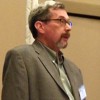Presentation on “Can Desalination Solve California’s Water Problems” offered at MJC
The Modesto Area Partners in Science (MAPS) will offer the presentation “Can Desalination Solve California’s Water Problems” by Tom Luster, an analyst with the California Coastal Commission. The free event is scheduled for Friday, March 25 at 7:30 p.m. in Sierra Hall 132 on Modesto Junior College’s West Campus. 2201 Blue Gum Avenue, Modesto.
Even with the interest fostered by the biggest drought in recent state history, desalination remains a small part of California’s water supply. Luster will discuss the role desalination could play in California’s water portfolio and some of its key benefits, including the ability to provide a local and reliable water source and the potential to reduce pressure on other water sources. He will also look at some concerns, such as its relatively high costs, intensive energy use, and its environmental effects.
The presentation will also describe California’s recent history with desalination projects and discuss how desalination can serve as part of California’s approach to beneficial water management.
Tom Luster advises the California Coastal Commission on policies and projects related to desalination along the California coast. He was the principal author of a March 2004 report published by the Commission titled “Seawater Desalination and the California Coastal Act”. In 2003, he served on a desalination work group for the Monterey Bay National Marine Sanctuary and was co-chair of the state’s Desalination Task Force, which was directed by the Legislature to identify opportunities and constraints on desalination in California. His other work at the Commission includes evaluating policies and proposals related to energy and ocean resources, including offshore oil and gas, coastal power plants, and others.
Prior to his work at the Commission, Tom was a senior policy analyst for water quality and wetland issues in Washington State. His graduate and undergraduate work focused on water issues and resource management.
The free public MAPS event is intended for people over 12 years of age. MAPS programs are made possible by contributions from ASMJC, the MJC Foundation and the MJC STEM program.
For more information about the MAPS program visit the website maps.events.mjc.edu/, the Facebook page www.facebook.com/pages/Modesto-Area-Partners-in-Science/244618054801 or contact Professor Hughes at 575-6800 or hughesn@mjc.edu<mailto:hughesn@mjc.edu>.









